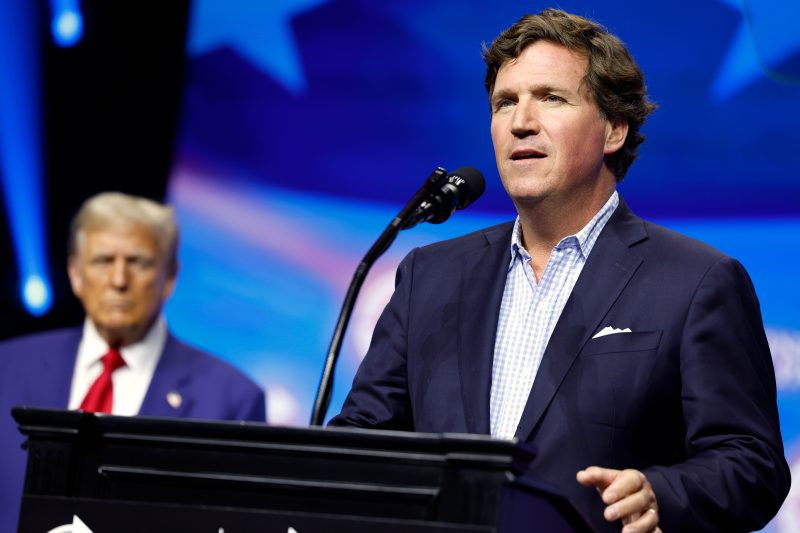
Senate Democrats push leaders to expand map to Florida, maybe Texas
Tired of playing only defense, a small but vocal number of Senate Democrats are pushing party leaders and political operatives to pour money into trying to knock off GOP incumbents in races most view as long shots for Democrats.
They fear Democrats are leaving potential pickups on the table, particularly in Florida and Texas, where unpopular incumbents, Sens. Rick Scott (Fla.) and Ted Cruz (Texas), have not seen anything resembling the financial onslaught faced by GOP candidates in Ohio, Pennsylvania or Arizona.
“It is not a question of will or strategy or preference. It is a question of money,” Sen. Brian Schatz (D-Hawaii) said specifically of Florida. “If we have it, we have a very strong chance of winning. And if we don’t, we don’t.”
“I just spent three days in Florida to make that very point. I think we will win Florida if we put in a real effort,” said Sen. Sheldon Whitehouse (D-R.I.), who campaigned with second gentleman Doug Emhoff in a traditionally conservative-leaning area outside Orlando.
Comments like these from prominent Democrats up pressure on the main party entities to shift their long-held strategy from, first and foremost, defendingeight Democratic-held seats that are seen as the most competitive. An eight-for-eight performance, difficult to pull off perfectly, would likely leave the Senate deadlocked at 50-50, allowing Democrats to retain the majority if Vice President Kamala Harris wins the presidential contest.
The Democratic Senatorial Campaign Committee has held a strategy of “no shiny objects” for its four years under the leadership of Sen. Gary Peters (D-Mich.), fearful of wasting hundreds of millions of dollars in races that are not ultimately winnable, as happened in a few states in 2018 and 2020.
“Well, I don’t have unlimited money, so right now we’re focused on our incumbent states,” Peters said, noting that large TV ad budgets are, for now at least, focused on defense. “So that’s where our priority, where our resources are.”
The total budgets in the Senate races illustrate those priorities.
In the eight races Democrats are defending, their candidates and outside allies have spent or reserved almost $800 million toward commercials since the spring, according to data analyzed as of Friday by AdImpact, an independent group monitoring political spending.
In Florida, Democratic Senate candidate Debbie Mucarsel-Powell and a few outside allies have spent or reserved just $5 million, while Rep. Colin Allred (D-Tex.), Cruz’s opponent,has banked $39 million for his ad budget from his campaign and allies.
Those pushing for an infusion into Florida and Texas are careful to say they don’t want to abandon any of those other Democrats, seven of whom have held steady leads in polling throughout the summer. And they support the continued defense of Sen. Jon Tester (D-Mont.), who has trailed in most polls in what could be a tipping-point race for Republicans to claim the majority.
However, they say, the low-population state of Montana is already saturated with more than $220 million of Senate ads, per AdImpact, leaving little to gain by increasing spending there.
Democrats pushing a stay-the-course strategy argue that, despite close polling margins between the candidates,Florida and Texas are massively expensive states with a likely turnout of nearly 11 million voters each. Moving the electorate by just a couple of percentage points represents up to 250,000 voters, a herculean task compared to Montana and its roughly 600,000 total voters.
But Whitehouse and Schatz, as well as many operatives working in the two states, believe unique opportunities exist and the value of an unexpected Senate seat for six years is worth the treasure.
“Democrats and Republicans have the same problem in those media markets: They’re big and they’re expensive, and you’ve got to get the money in there,” Whitehouse said.
In 2022, the DSCC and its super PAC ally, Senate Majority PAC, faced criticism for not going more heavily into North Carolina and Wisconsin, where their candidates narrowly lost. But ultimately the strategy of sticking to five key states paid off, as every Democratic incumbent won and their party flipped Pennsylvania, adding to their majority despite Biden’s unpopularity.
That was under the leadership of Peters, for whom the no-shiny-objects mantra is personal.
In 2020 he felt abandoned in his reelection bid in notoriously purple Michigan, as national Democrats poured tens of millions into ultimately hopeless places such as South Carolina and Iowa. As those races turned into mirages, Peters barely hung on, winning by less than two percentage points. So when Peters took over the DSCC the following year, he kept his focus on the states that seemed most winnable.
Peters noted that the DSCC considers Texas and Florida important enough to provide funds for staff on the ground and they were included in the recent launch of a $25 million get-out-the-vote push in the 10 key states.
“We’re putting in resources on the ground in both of those states. We have challengers that are in the margin of error,” he said, using the term for a candidate who is trailing but statistically close enough to be considered almost tied.
In 2018, Scott, a former health care executive with a net worth of hundreds of millions of dollars, eked out a victory of less than 13,000 votes, even smaller than his one-point margins in two successful races for governor.
Florida Democrats have sent up flares to Washington that this time around Scott has not raised the tens of millions from donors needed to run a full-force campaign, nor has he written the types of massive personal checks that he used to win the governor’s mansion.
Indeed, AdImpact shows that Scott’s side has only spent and reserved $12 million for his campaign — a pittance by Florida standards in statewide races.
With very little incoming from Republicans, Mucarsel-Powell has been able to slowly introduce herself to voters, most of whom didn’t know her from her one term in the House in 2019-20. Having raised less than $15 million by the end of July, her first ad launched in early September, and she talked about her family fleeing Ecuador in search of freedom in Miami.
“It’s why I came to America,” she says, “but Rick Scott is trying to take away your freedoms right now.”
Her campaign is also hoping a ballot initiative to reverse the six-week ban on abortion signed into law by Gov. Ron DeSantis (R) provides a boost. Requiring a 60 percent threshold to become law, the ballot initiative has a well-financed voter turnout operation that could help the Senate candidate.
Democrats have good reason to be pessimistic about Florida. The Sunshine State has trended against them since Barack Obama won it a second time in 2012. Donald Trump narrowly defeated Hillary Clinton by one percentage pointthere in his 2016 race and then beat Joe Biden by 3.5 percentage points four years ago. Blowout reelections in 2022 for DeSantis, by 20 points, and GOP Sen. Marco Rubio, by 16 points, marked a modern low for Florida Democrats.
Still, Harris’s entry into the presidential race has jolted the environment there, as it has in many states. Emhoff’s appearance in The Villages, a sprawling retirement community that spawned some outlandish scenes of support for Trump, summoned a surprising turnout of energized Democrats.
“Like bears after hibernation, Democrats are coming out of their caves and looking at each other and saying, Hey, actually, there are a lot of us,” Whitehouse said.
Emhoff arrives Monday in Texas for a multiday tour that involves a public event with candidates and some private fundraising, in what some see as a test run for where more resources might head.
The Democratic dream of flipping Texas, along with its now-40 electoral votes, has been the party’s great hope for years now, but seems still out of reach.
In 2018, Cruz won by just 2 percentage points against Beto O’Rourke, whose unconventional $80 million campaign excited liberals in Texas but demonstrated how hard it is to get those final few points for victory.
Yet Texas has slowly grown better for Democrats. Clinton lost by nine percentage points in 2016, Biden by just 5.5 points in 2020.
Allred is raising more money than Mucarsel-Powell and running a more conventional campaign witha heavy advertising component. A former NFL linebacker and civil rights lawyer, the three-term congressman’s biography is a unique asset.
Luke Warford, who launched a political group to focus on the long-term infrastructure to turn Texas blue, believes that national Democrats should also pour money into helping Allred for both the possible short-term boost but also the long-term play of bringing the Lone Star State into their column.
“Whether or not Colin wins, it starts the momentum to get us there,” Warford said. “Texas is the game-over state.”



